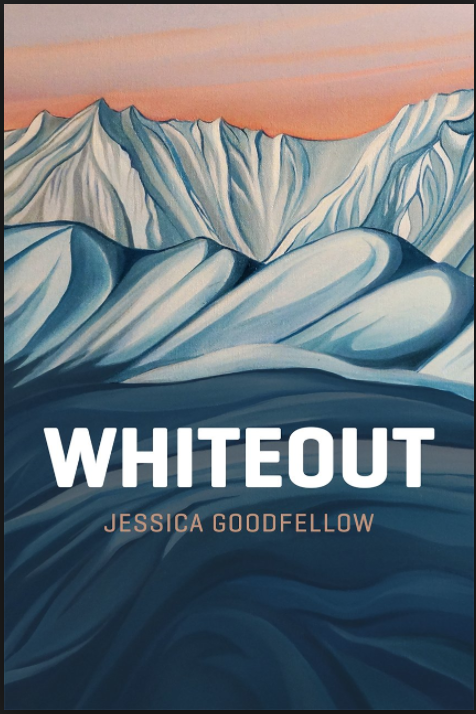ISSN: 1941-4137
POETRY THAT ENACTS THE ARTISTIC AND CREATIVE PURITY OF GLASS
POETRY THAT ENACTS THE ARTISTIC AND CREATIVE PURITY OF GLASS

Shalida A. Dobbins is originally from Cleveland, Ohio. She was born with a rare birth defect called sacral agenesis. She has used a wheelchair since the age of three. For high school, she attended the performing arts school Cleveland School of the Arts. Her senior year she started her first blog. She started her current blog, S.A. the Writer, in 2013. It’s a lifestyle blog where she shares her life experiences with being disabled and mental illnesses. Shalida studied journalism at Point Park University before taking a break after her sophomore year to focus on her anxiety and depression.
In 2016 she was chosen as a Top Digital Influencer by the organization Latism for her activism and advocacy for the Afro-Latina community and disabled community. She’s currently writing for her blog and working on her first short story collection. Shalida is an intersectional feminist and activist for minorities.
July 11, 2018
Edited by Stephanie Kaylor
#TBT Reviews Series
Edited by Stephanie Kaylor
#TBT Reviews Series
Review of Whiteout by Jessica Goodfellow
 Whiteout
by Jessica Goodfellow
University of Alaska Press, 2017
Imagine someone you've never really known having a major impact on your life. For Jessica Goodfellow that's the case and inspiration behind her poetry collection, Whiteout (University of Alaska Press, 2017). When she was a toddler in 1967, Goodfellow's twenty-two year old uncle went missing along with six other explorers during an expedition to Denali. Throughout her childhood her uncle was somewhat of a ghost. She knew what had happened to him but no one ever discussed him. He was present, but only in memories and that which was left unsaid. In this collection of poetry, Goodfellow pinpoints every emotion she experienced growing up in the shadow of a family member she never really knew. Through the use of free form poetry, Goodfellow brings the reader into the cold, snowy abyss her uncle faced alongside his fellow explorers. The reader is also introduced to how the rest of the family dealt with the abrupt ending of his life along, including the inability to have a proper burial as his body was never discovered during the search parties, making closure even more elusive.
Goodfellow does an excellent job at telling a story strictly through poems, and readers will find it to be an especially unique and personal one. The collection is short in length, but doesn't lack in creativity and the story itself. Goodfellow begins with how she and her family deal with the loss, and how she can now look at her uncle as a fully-fleshed person who once existed rather than a mere repressed memory. The snow and environment is a character in the poems as well, and takes on human qualities. Reading Whiteout is like going through an emotional winter storm: tragedy, love, repression, and even depression all have a spotlight in this collection.
The style of each poem also profoundly shapes how the story is presented; from strictly vertical free form styles to even some sporadic placements of stanzas, this juxtaposition confronts the reader to make them aware of the chaos of some of the stories told. Some poems in the collection maintain a more analytical form, such as the numbering of each stanza to tell the story, and with each number also signifying importance to Goodfellow and the connection she has with her uncle. The poem “22” is a list of facts about her uncle and the family. In each line the number twenty-two is made the theme that pulls everything together: line two reads “My mother was 1 of two siblings. Her younger brother, my uncle, was born the year my mother turned 4 years old, in 1944. 44=22×2.” With the numerical style the reader is given a list of facts that all relate back to the number twenty-two, which holds a significance for Goodfellow.
Whiteout is an emotional journey and a tribute to a loved one who was tragically taken, from both life and from oral narratives in the author’s family’s mechanisms of working through grief — not just a collection of poetry, but a mausoleum filled with forgotten memories, honesty, understanding, and grief for someone who made an impact without even being present.
Visit Jessica Goodfellow's Website
Visit University of Alaska Press' Website
Whiteout
by Jessica Goodfellow
University of Alaska Press, 2017
Imagine someone you've never really known having a major impact on your life. For Jessica Goodfellow that's the case and inspiration behind her poetry collection, Whiteout (University of Alaska Press, 2017). When she was a toddler in 1967, Goodfellow's twenty-two year old uncle went missing along with six other explorers during an expedition to Denali. Throughout her childhood her uncle was somewhat of a ghost. She knew what had happened to him but no one ever discussed him. He was present, but only in memories and that which was left unsaid. In this collection of poetry, Goodfellow pinpoints every emotion she experienced growing up in the shadow of a family member she never really knew. Through the use of free form poetry, Goodfellow brings the reader into the cold, snowy abyss her uncle faced alongside his fellow explorers. The reader is also introduced to how the rest of the family dealt with the abrupt ending of his life along, including the inability to have a proper burial as his body was never discovered during the search parties, making closure even more elusive.
Goodfellow does an excellent job at telling a story strictly through poems, and readers will find it to be an especially unique and personal one. The collection is short in length, but doesn't lack in creativity and the story itself. Goodfellow begins with how she and her family deal with the loss, and how she can now look at her uncle as a fully-fleshed person who once existed rather than a mere repressed memory. The snow and environment is a character in the poems as well, and takes on human qualities. Reading Whiteout is like going through an emotional winter storm: tragedy, love, repression, and even depression all have a spotlight in this collection.
The style of each poem also profoundly shapes how the story is presented; from strictly vertical free form styles to even some sporadic placements of stanzas, this juxtaposition confronts the reader to make them aware of the chaos of some of the stories told. Some poems in the collection maintain a more analytical form, such as the numbering of each stanza to tell the story, and with each number also signifying importance to Goodfellow and the connection she has with her uncle. The poem “22” is a list of facts about her uncle and the family. In each line the number twenty-two is made the theme that pulls everything together: line two reads “My mother was 1 of two siblings. Her younger brother, my uncle, was born the year my mother turned 4 years old, in 1944. 44=22×2.” With the numerical style the reader is given a list of facts that all relate back to the number twenty-two, which holds a significance for Goodfellow.
Whiteout is an emotional journey and a tribute to a loved one who was tragically taken, from both life and from oral narratives in the author’s family’s mechanisms of working through grief — not just a collection of poetry, but a mausoleum filled with forgotten memories, honesty, understanding, and grief for someone who made an impact without even being present.
Visit Jessica Goodfellow's Website
Visit University of Alaska Press' Website
Glass: A Journal of Poetry is published monthly by Glass Poetry Press.
All contents © the author.
All contents © the author.





